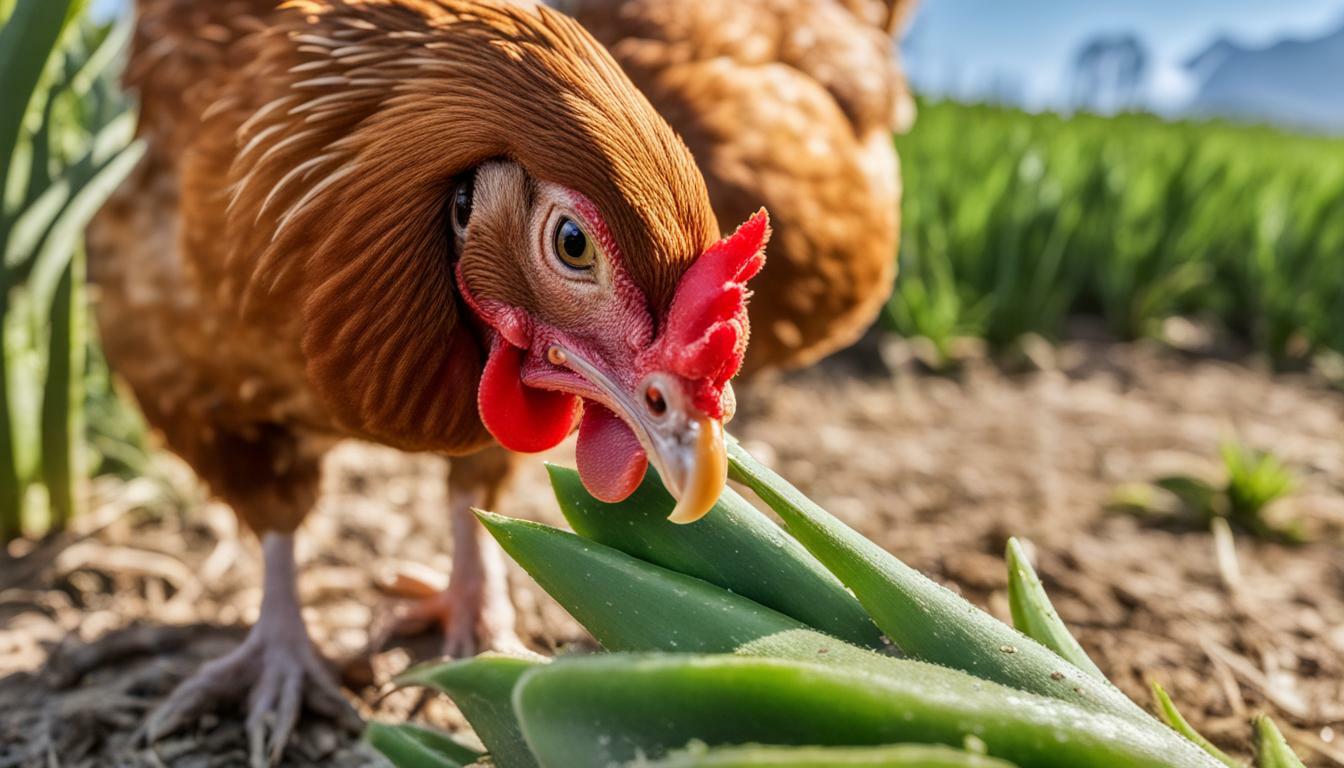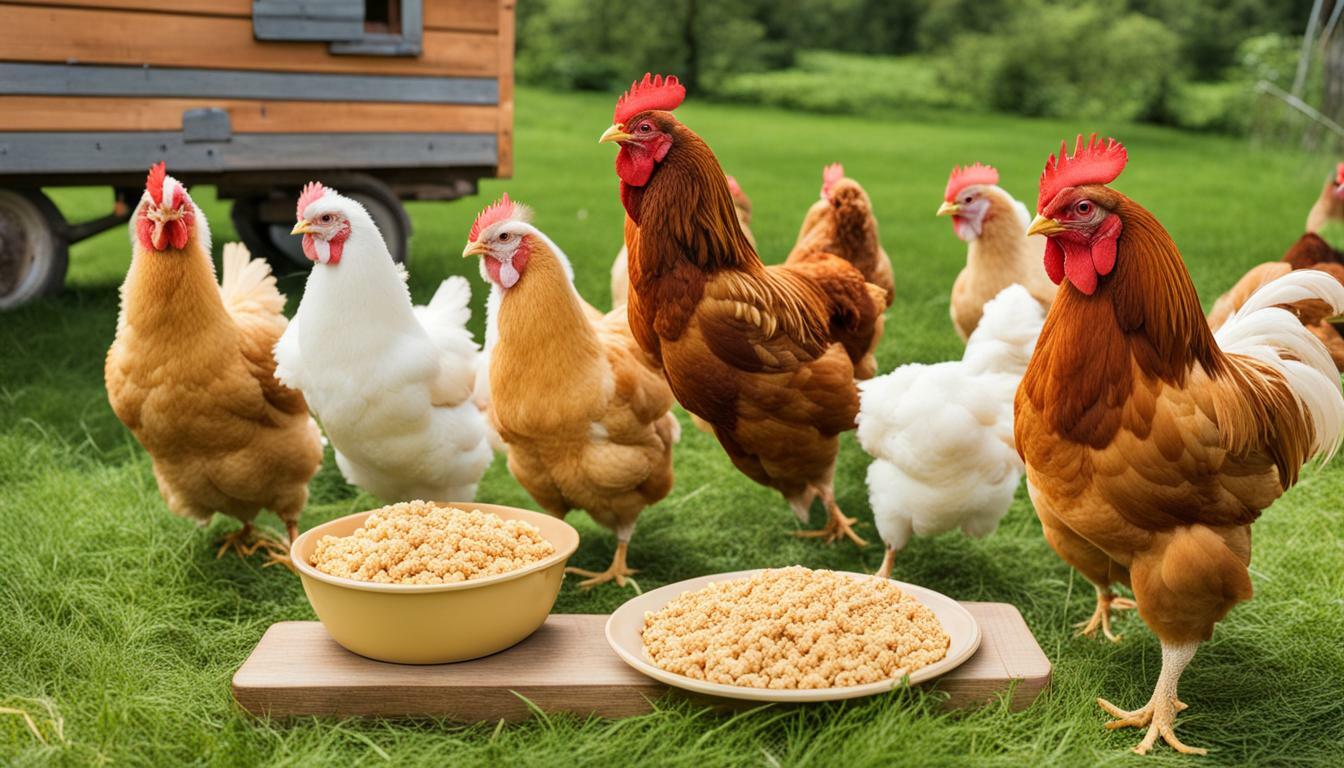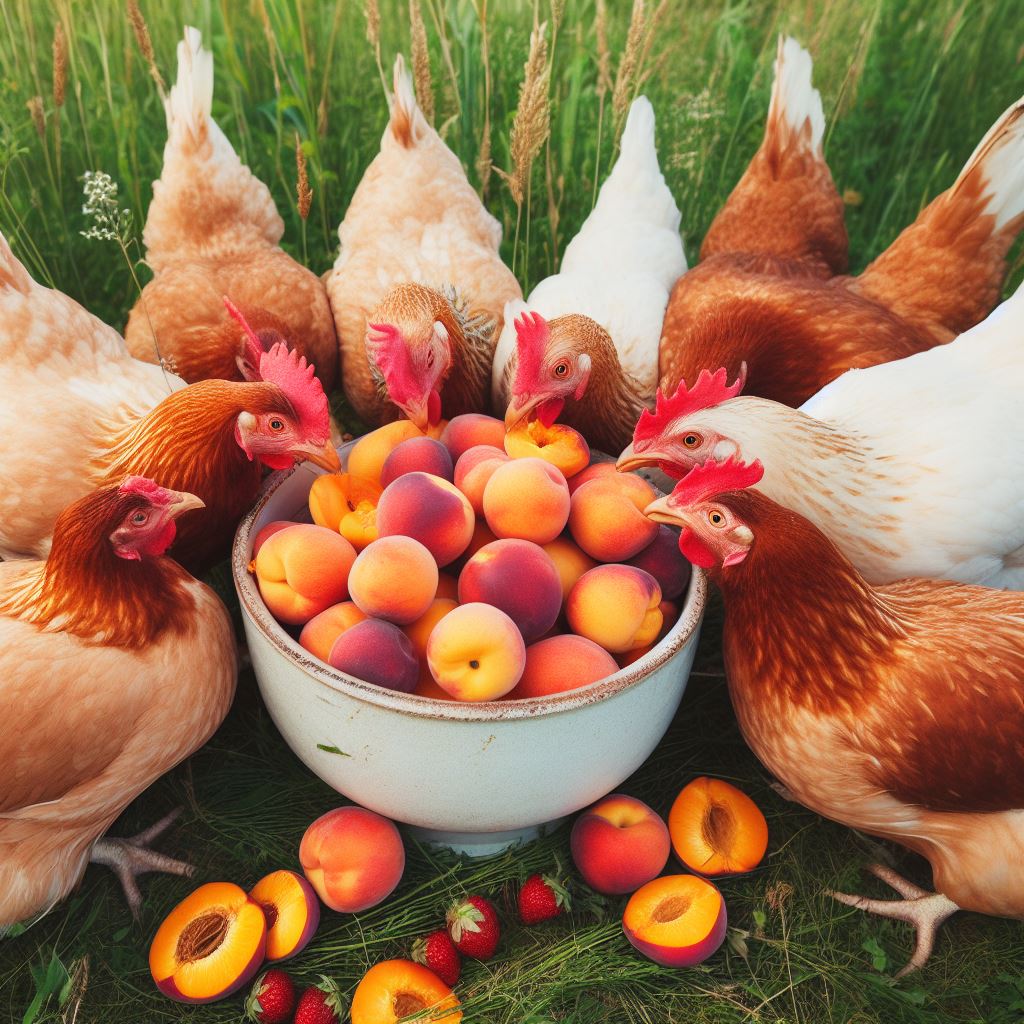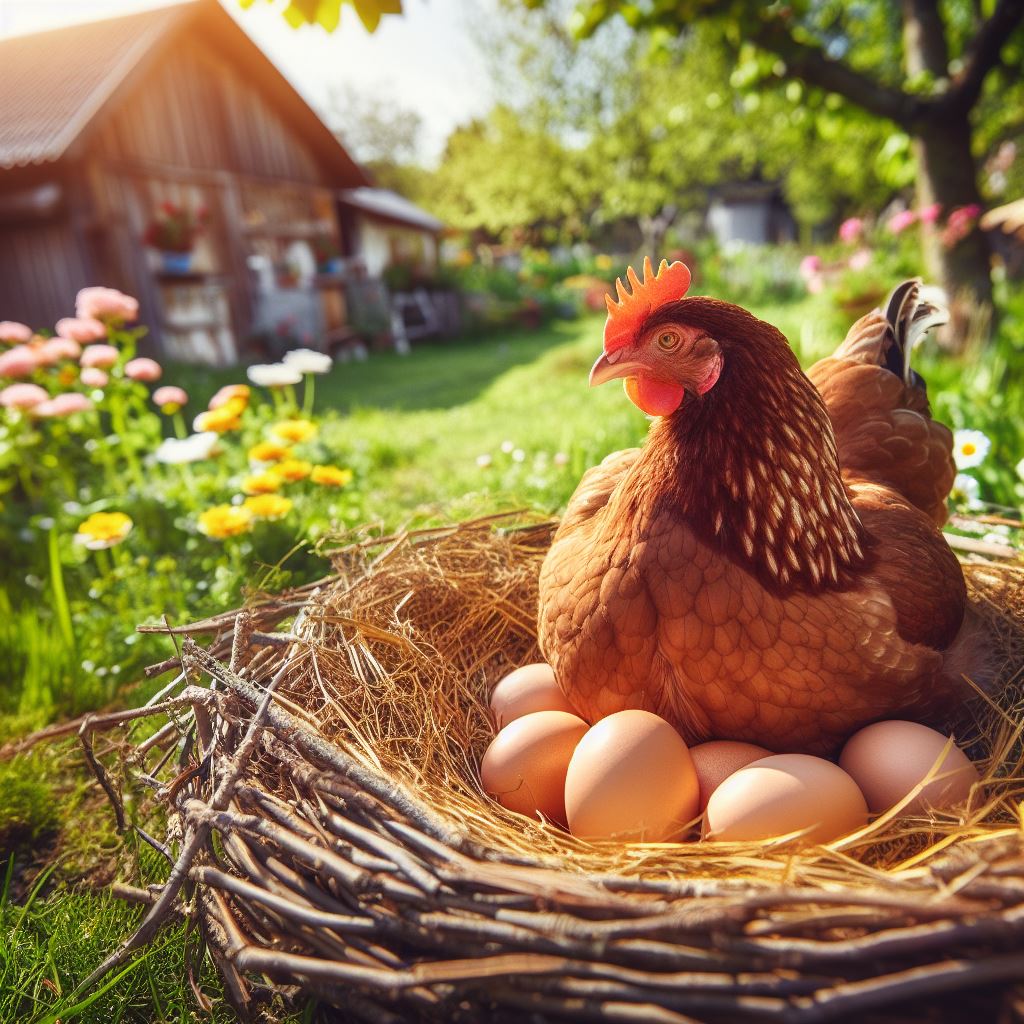Can Chickens Eat Aloe Vera? Discover the Facts And Alternatives

Table of content:
- Is Aloe Vera Poisonous to Chickens?
- What Are the Benefits of Feeding Chickens Aloe Vera?
- Do Chickens Like the Taste of Aloe Vera?
- How Much Aloe Vera Can I Feed My Chickens?
- Should I Give My Chickens Aloe Vera Daily or Weekly?
- Can I Feed Chickens Aloe Vera Gel or Just the Leaves?
- Will Aloe Vera Hurt Baby Chicks?
- Can You Put Aloe Vera in Chicken Water?
- Is it Safe for Chickens to Eat Aloe Vera Skin Care Products?
- Final Thoughts
Aloe vera is a popular house and garden plant that has many health and medicinal benefits for humans. But can chickens eat aloe vera too? Let’s take a look at whether aloe vera is safe for chickens and how it can benefit your flock.
Is Aloe Vera Poisonous to Chickens?
One of the first questions backyard chicken keepers have is is aloe vera poisonous to chickens? The good news is that aloe vera is not toxic to chickens when consumed in moderation.
Aloe vera contains compounds like aloin and aloe-emodin which can cause diarrhea if large quantities are ingested. But chickens can safely eat the flesh and gel from aloe vera leaves with no ill effects.
So aloe vera is not poisonous or unsafe for chickens when fed occasionally and in small amounts. Monitor your chickens for any signs of diarrhea if introducing aloe vera and reduce the amounts if needed.
What Are the Benefits of Feeding Chickens Aloe Vera?
Chickens can gain some great health benefits from eating aloe vera due to its medicinal properties. Here are some of the main advantages of feeding your flock aloe vera:
- Natural antibacterial and antibiotic – Aloe vera has antibacterial, antiviral and antifungal properties which can help fight disease and infections. It may boost immunity and gut health.
- Anti-inflammatory – The compounds in aloe vera have anti-inflammatory effects which can help with issues like arthritis, joint pain, and inflammation.
- Nutrient absorption – Aloe vera may improve digestion and nutrient absorption from feed. It contains enzymes which aid this process.
- Hydration – The high water content in aloe vera can help chickens stay hydrated, especially important in hot weather.
- Rich in vitamins and minerals – Fresh aloe vera gel contains vitamins A, C, E, B1, B2, B3, B6, folic acid, plus minerals like calcium, magnesium, zinc, chromium, selenium, sodium, iron, potassium, copper, and manganese.
So feeding chickens fresh or dried aloe vera can provide a range of important vitamins, minerals and beneficial plant compounds to support their health and immunity.
Do Chickens Like the Taste of Aloe Vera?
Aloe vera has a bitter, tangy taste which chickens may not find very palatable at first. Roosters and hens have different preferences when it comes to flavors.
You can try offering your chickens small pieces of aloe vera leaf or gel to see if they will eat it. Often if they see flock mates eating a new food, they will try it too.
Make aloe vera more enticing by chopping it up and mixing it in with favored treats like corn, oats, rice, vegetables, fruits or greens. Gradually reduce the tastier ingredients as your flock gets accustomed to the aloe vera.
Chicks may be more receptive to new flavors like aloe vera. Introduce it when they are young before their preferences are set. They will likely eat aloe vera readily when foraging.
How Much Aloe Vera Can I Feed My Chickens?
It’s best to start slowly when introducing any new supplemental feed to backyard chickens. Too much aloe vera can cause loose droppings.
A good general rule is to limit aloe vera to around 2 tablespoons per hen per day. Or around 1 pound of fresh aloe vera leaves per 20 birds per day.
Start with small amounts like 1 teaspoon gel or 1 inch of leaf 1-2 times a week. Slowly increase the quantity while monitoring your chickens for any digestive issues.
Free-ranging chickens will naturally forage on aloe vera in the yard as wanted. But restrict access if they are overindulging and getting diarrhea.
Should I Give My Chickens Aloe Vera Daily or Weekly?
There’s no strict protocol for how often you should feed chickens aloe vera. You can offer it daily or a few times a week depending on your purpose.
As a general health tonic and nutritional supplement, feeding aloe vera 2-3 times a week is sufficient. For chickens recovering from illness or under stress, you can provide small daily amounts.
During hot summer months when chickens need added hydration, aloe vera juice or gel can be given daily. Reduce frequency in winter when water needs are lower.
Listen to your chickens – if they readily eat aloe vera each time, increase frequency. If they ignore it, decrease offerings to a couple times a week. Avoid boredom while still providing benefits.
Can I Feed Chickens Aloe Vera Gel or Just the Leaves?
Chickens can eat both the gel and the leaves of the aloe vera plant. Each part provides slightly different benefits:
- Gel – The mucilaginous gel from inside aloe vera leaves has a high concentration of nutrients, enzymes, polysaccharides and compounds. It provides more digestible nutrition for absorption.
- Leaves – The thick aloe vera leaves also provide nutrients, fiber and moisture. Chickens will nibble and chew the leaves which is healthy for their beaks and digestion.
Many people find collecting aloe gel to be messy and time consuming. So they opt to simply chop up whole leaves into bite-sized pieces for their chickens. Both gel and leaves are great choices.
If you don’t have access to fresh aloe vera plants, you can also buy pre-prepared stabilized aloe vera gel or powder to add to feed.
Will Aloe Vera Hurt Baby Chicks?
Once chicks are 2-4 weeks old and eating starter feed well, they can start having small tastes of aloe vera. Introduce it slowly and monitor for any issues. Their digestive systems are quite sensitive initially.
By 6-8 weeks old, most chicks have matured enough to handle aloe vera without problems. Offer just tiny amounts at first to avoid diarrhea.
Always make sure chicks have unlimited access to clean water. The extra hydration from aloe vera gel may also help prevent issues when they try new foods.
Never give aloe vera to newly hatched chicks under 2 weeks old as it can really disrupt their digestion. Wait until they are thriving on starter feed before experimenting with aloe vera.
Can You Put Aloe Vera in Chicken Water?
During hot summer months, adding aloe vera juice or gel to your chickens’ waterers can serve two purposes:
- It provides extra hydration, electrolytes, and nutrients
- The antimicrobial properties keep their water fresh for longer
Add around 2 tablespoons of prepared aloe vera juice or gel per gallon of water. Shake or stir well to dissolve. Change the water at least daily as chickens will soil it rapidly.
Aloe vera water supplements are safe when given occasionally during heat waves. But don’t make aloe vera water your chickens’ sole water source for extended periods as it can act as a diuretic. Plain, clean water should always be available.
Is it Safe for Chickens to Eat Aloe Vera Skin Care Products?
Many common aloe vera skin lotions, gels, ointments and cosmetics contain added ingredients like perfumes, colorants, alcohols, and preservatives. These products are not intended for oral consumption.
While small tastes likely won’t harm chickens, it’s best to avoid letting them eat topical aloe vera products meant for human use. They don’t provide the same nutritional and health benefits as the pure inner leaf gel.
If chickens do ingest some, watch closely for any vomiting, diarrhea or other reactions. Discontinue use if any negative symptoms arise.
Only feed chickens the fresh inner gel or leaves from the aloe vera plant, or commercial aloe products specifically made for livestock consumption. This ensures safety and maximizes benefits.
Final Thoughts
When fed occasionally in moderation, nutrient-dense aloe vera can be a great supplement for backyard chicken flocks. It provides hydration, vitamins, minerals, enzymes, antioxidants and beneficial plant compounds.
Aloe vera may boost chickens’ general health, immunity and digestive functioning. Both the gel and leaves can be fed. Introduce it slowly and monitor chickens for loose droppings.
Be sure to offer fresh, clean water at all times when supplementing with aloe vera. Avoid letting chickens eat topical skin products not meant for consumption. Used wisely, aloe vera is a nourishing addition to a balanced poultry diet.
Welcome. I’m Adreena Shanum, the proud owner of this website, and I am incredibly passionate about animals, especially poultry. I founded adreenapets.com as a labor of love, stemming from my desire to share my knowledge and experiences with poultry enthusiasts worldwide.




